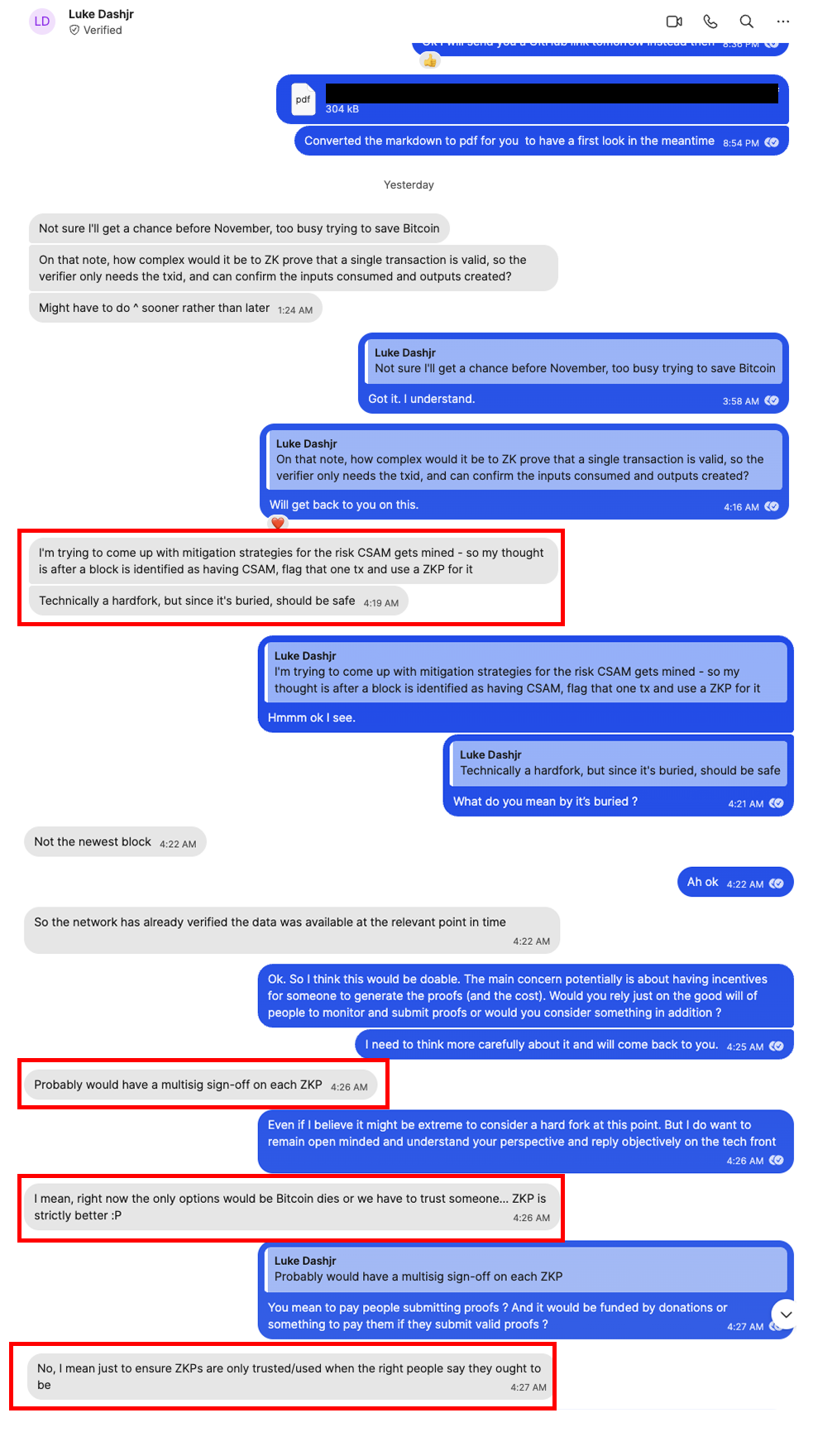Knots Maintainer Luke Dashjr Plans to Hardfork Bitcoin to Fight Spam

Leaked text messages obtained by The Rage reveal that Luke Dashjr, the lead maintainer of Bitcoin client software called Knots, is planning a hardfork to establish a multisig committee with the power to retroactively modify the Bitcoin blockchain. This committee would target transactions containing illicit material, such as child sexually abusive material (CSAM), by replacing offending data with zero-knowledge proofs. Dashjr described the choice starkly in the text messages, stating that Bitcoin faces a stark reality where it either perishes or relies on a centralized trusted group to intervene.
The ongoing tension between Dashjr and Bitcoin Core maintainers has simmered for years, rooted in differing views on non-monetary data usage. Core developers have weighed options like expanding OP_RETURN limits to discourage harmful practices, such as embedding data in unspendable outputs. Knots supporters, however, view such data as incompatible with Bitcoin’s core purpose as a monetary network.

Hardfork Proposal Sparks Debate on Censorship Risks
Dashjr’s leaked discussions indicate that current mempool filters in Knots fall short of preventing nodes from storing potentially illegal content once blocks are validated. The proposed multisig setup would allow a select group to review and alter transactions post-consensus, enabling node operators to excise specific data while maintaining proof of validity. This approach, he argued, addresses a vulnerability where all consensus-compliant nodes must retain the same blockchain data.
When approached by The Rage for comment, Dashjr dismissed the story as based on unfounded lies and declined further discussion. His proposal arrives amid broader policy conversations among miners, developers, and operators about handling illegal activity on the network. The authenticity of the text messages was confirmed through video evidence, with images of the exchanges published in the original report by The Rage.
The Knots-Core divide traces back to efforts to curb what Knots calls spam, evolving into heightened concerns over CSAM risks. Bitcoin Core’s upcoming version 30 update removes the 80-byte OP_RETURN limit, a move Core sees as market-driven where fees naturally deter abuse. Knots, which runs under 20% of total Bitcoin nodes, enforces stricter filters to block non-monetary transactions from its mempool.
Critics argue that retroactive alterations set a dangerous precedent, potentially extending to any disfavored data and facilitating demands for KYC and AML enforcement. Proponents of the hardfork view it as a necessary safeguard against reputational damage that could invite regulatory crackdowns. As node adoption for Knots grows, the debate underscores Bitcoin’s delicate balance between innovation and immutability.
Earlier exchanges on X highlight the personal stakes, with Dashjr defending Knots as essential against Core’s perceived negligence on spam and CSAM threats. Figures like Peter Todd have clashed with Dashjr over relay networks and data policies, labeling him dishonest in past disputes. Yet supporters, including OCEAN backer Jack Dorsey, see Knots as preserving Bitcoin’s integrity as sound money.

